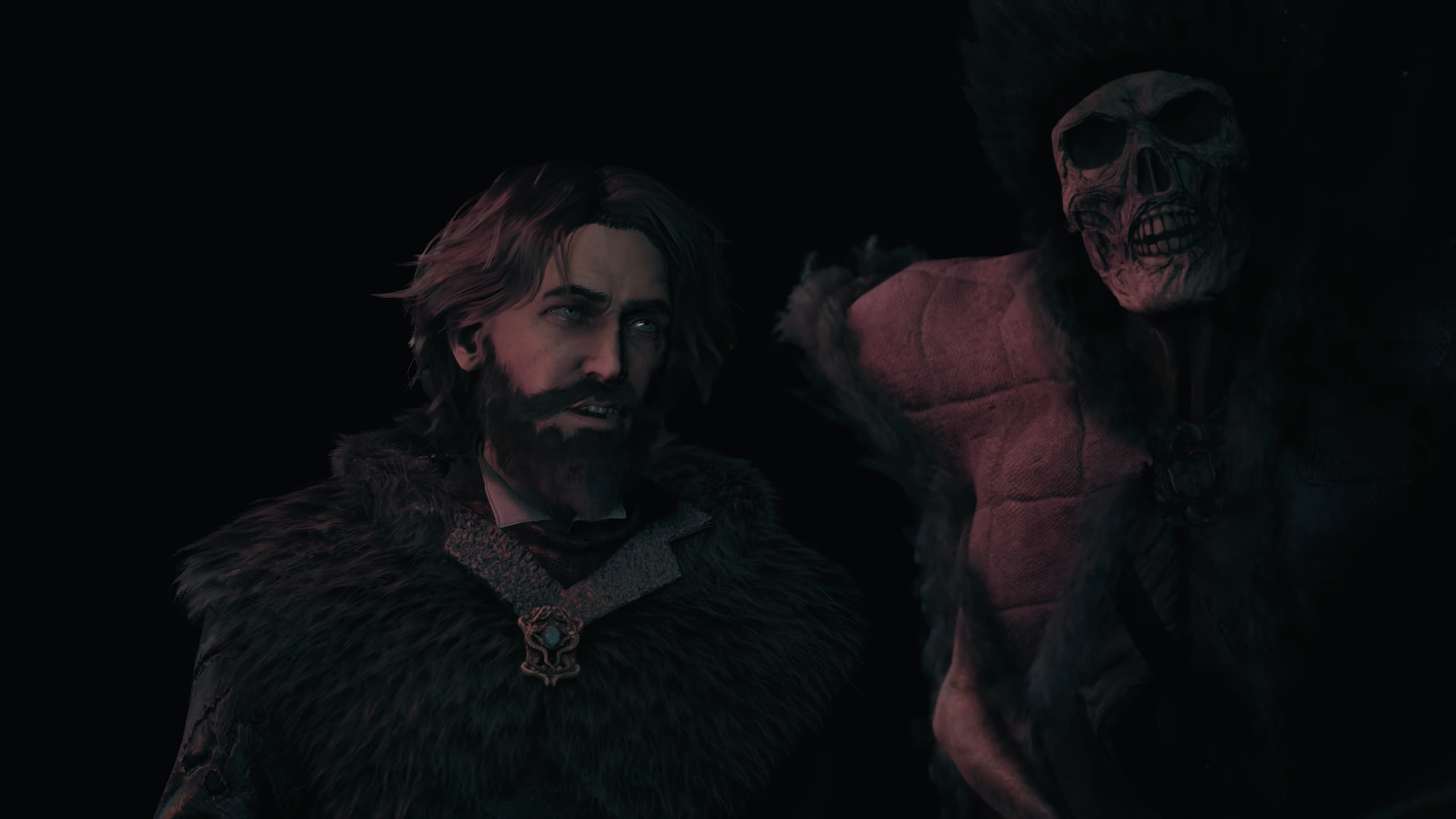Our Verdict
The Thaumaturge might be a bit light for RPG lovers, but it’s a gorgeous, incisive look at a world long past.
PC Gamer's got your back
The year is 1905. Wiktor Szulski sits on a train in Transcaucasia, now the country of Georgia. Pale and sickly, sweat dripping down the side of his face, he murmurs an apology to a ghostly figure across from him—a hovering skull draped in the cloak of an old nobleman, sword at its side and cane in its hand. Upyr is Wiktor's closest friend and confidante, a "salutor" that attached itself to him when he was young.
What is it? A singleplayer RPG set in 1905 Warsaw, with a dedicated eye to history and some fun spooky friends
Expect to pay $34.99 / £29.50
Developer Fool’s Theory
Publisher 11bit Studios
Reviewed on Windows 11, NVIDIA GeForce RTX 2060, AMD Ryzen 9 4900HS, 16GB RAM
Multiplayer? Nope
Steam Deck Unverified
Link Official site
Wiktor is a thaumaturge, a magician that can trap and command these salutors through the flaws they're attracted to. He's also desperately sick, on the verge of madness, and losing his connection to Upyr. His journey to heal himself, regain his power, and discover its limits will take him from the edges of the tsar's reign to his home city of Warsaw in Congress Poland, under the long arm of the Russian Empire. This history is both the basis for The Thaumaturge's story and the reason it unexpectedly bowled me over.
When Wiktor arrives in Warsaw, the tsar has just arrived, and it becomes clear that the city Wiktor has returned to is not the one he left. The tumult of this setting is a richly compelling backdrop for a story combining magic lineages, urban politics, and the oppressive hand of empire, though The Thaumaturge is occasionally weighed down by the RPG conceits it's beholden to, which end up feeling like more of a distraction than an enhancement.
Once I arrived in Warsaw I ran into fairly regular texture pop-in when loading maps, but otherwise my sojourns were technically seamless. The same unfortunately can’t be said for Wiktor’s neighborhood reputation, as he seems to have pissed off every asshole with a descriptor for a name ("Cuckold" was a personal favorite) from Mirów to Powiśle. For every heartfelt moment I found on the streets of Warsaw there was also a random, pointless battle with what seemed like an endless list of brawlers, thugs, drunkards, bully cops, and on one memorable occasion a particularly ornery doctor(?).
Every round in combat Wiktor gets an action, as does one of his salutors, whose abilities draw from the human Flaw they follow. Upyr follows Pride and can do damage and heal Wiktor at the same time; the chirping, skeletal bird-creature Lelek follows Recklessness and can break enemies Focus, sending them into a Breakdown state where they’re more susceptible to stronger attacks; you get the idea.
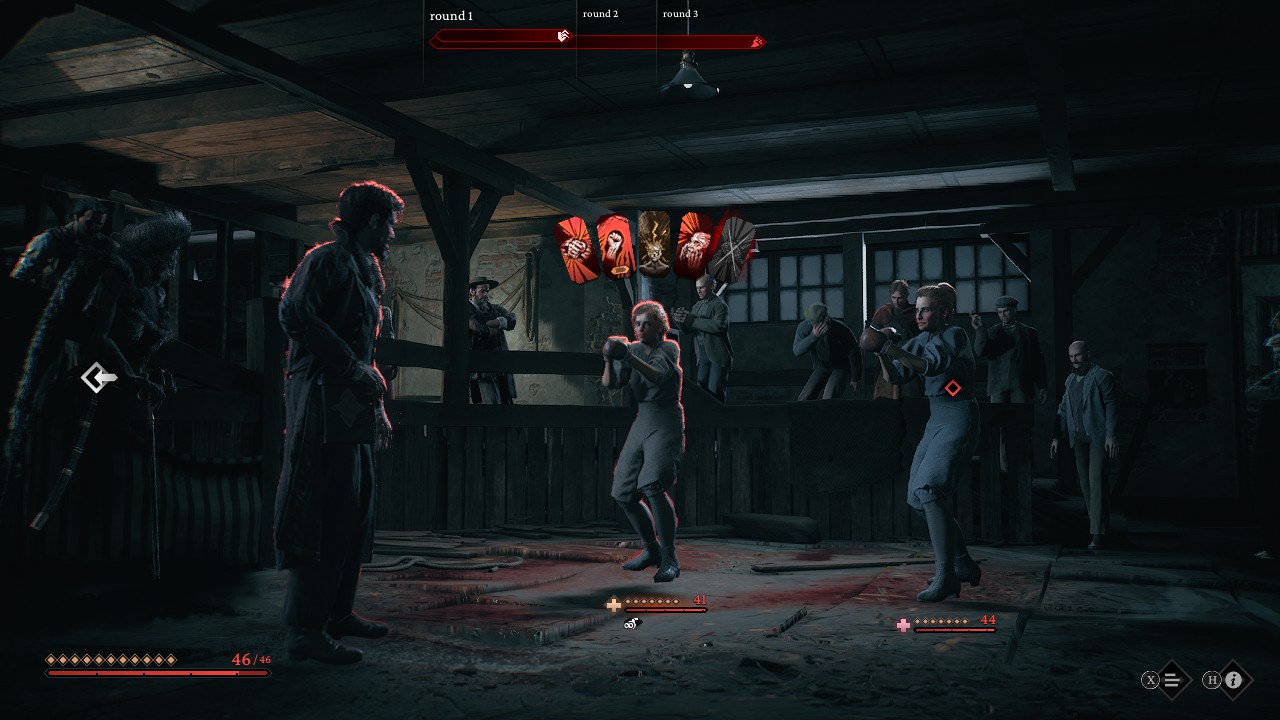
There's plenty of choice in how to employ Wiktor's horde of grotesque imaginary friends, but it implies a diversity to combat that never manifests—fights are uniform enough that you only have to buckle down and strategize against bosses, which are few and far between. It was fun to watch my salutors cause far more mess than a street fight deserved, but combat as a whole felt tacked on to a narrative that is clearly more interested in exploration and social activity than proving your poncy rich boy can beat up the neighborhood tough.
Far more interesting than combat is social manipulation, where the salutors really get to shine. When Wiktor collects a salutor he also takes on the flaw they're attracted to, and he can then use that salutor to manipulate that flaw in other people. Sometimes this is just shown as a dialogue option, but in more important quests the salutors will appear alongside you. It's an excellent and heady feeling watching the gilded serpent Veles slither around some unfortunate soul while other characters are oblivious, knowing that Wiktor has access to this strange, dangerous world past what a normal person understands.
It's a perfect use of the internal logic that underlines each salutor, but criminally underused throughout the game. In other moments I was frustrated to be railroaded into self-sabotaging dialogue or forced into fights when I knew Wiktor has the ability to change someone's heart with a snap of his fingers.
When I wasn’t throwing down with my salutors, I spent the rest of my time using Wiktor’s Perception skill to learn things about Warsaw and its people. The total lack of puzzle to this mechanic—right-click, interesting things are highlighted, bing bang boom—fits because the major magical ability of thaumaturges is detecting Traces people have left on their surroundings. This can be used to answer questions, of course, but it also means Wiktor wanders around the city in a constant state of quiet empathy, noticing everywhere the drifting emotions of the children and lovers and drunkards and wanderers of Warsaw. These traces are some of the most charming, emotionally engaging writing in the game, and they're even more affecting because of their ephemeral nature. If Wiktor sits down on a bench to rest for a moment he might feel the same tiredness of the person who sat there before him, finally catching a breath after a long day running around the city for work; if he picks up a magazine sitting next to him, he can tell that the person who held it envied the fine clothing in its ads, wanting to impress the person they loved. These emotional remnants make the world feel like it exists outside of Wiktor, and give some moments of really beautiful color to Warsaw—a city which, aside from Wiktor, is arguably the main character of the game.
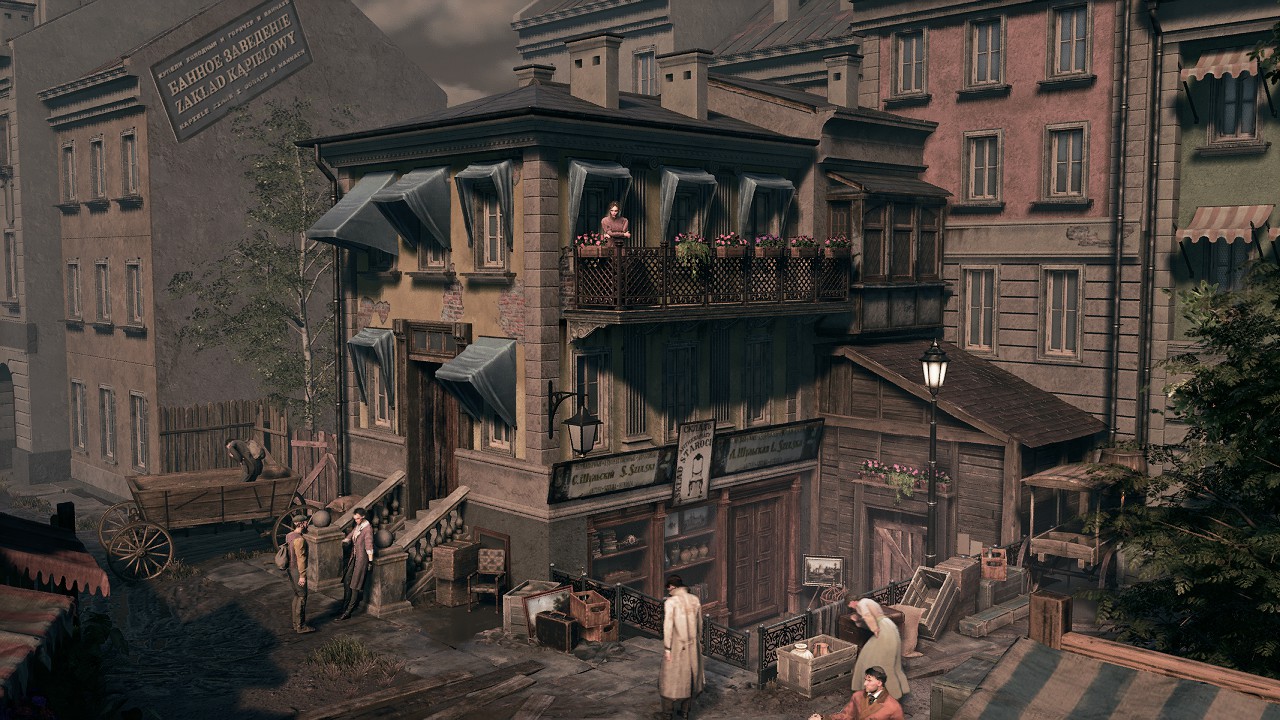
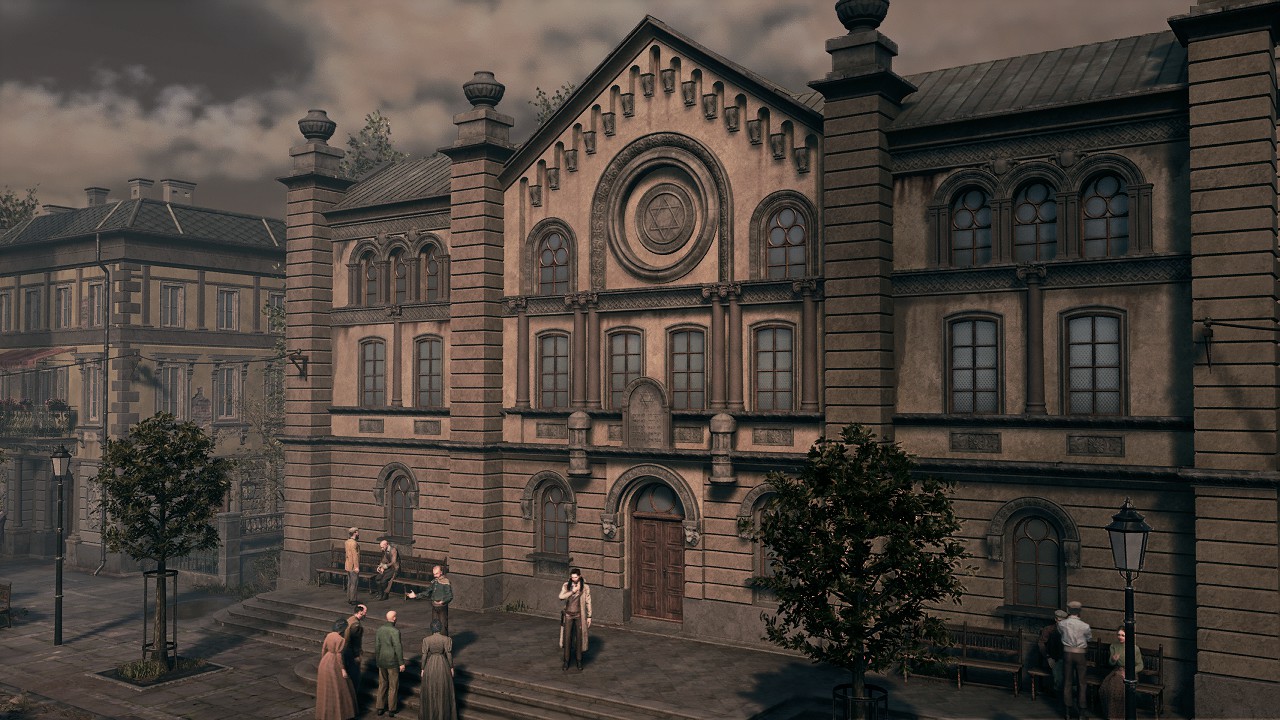
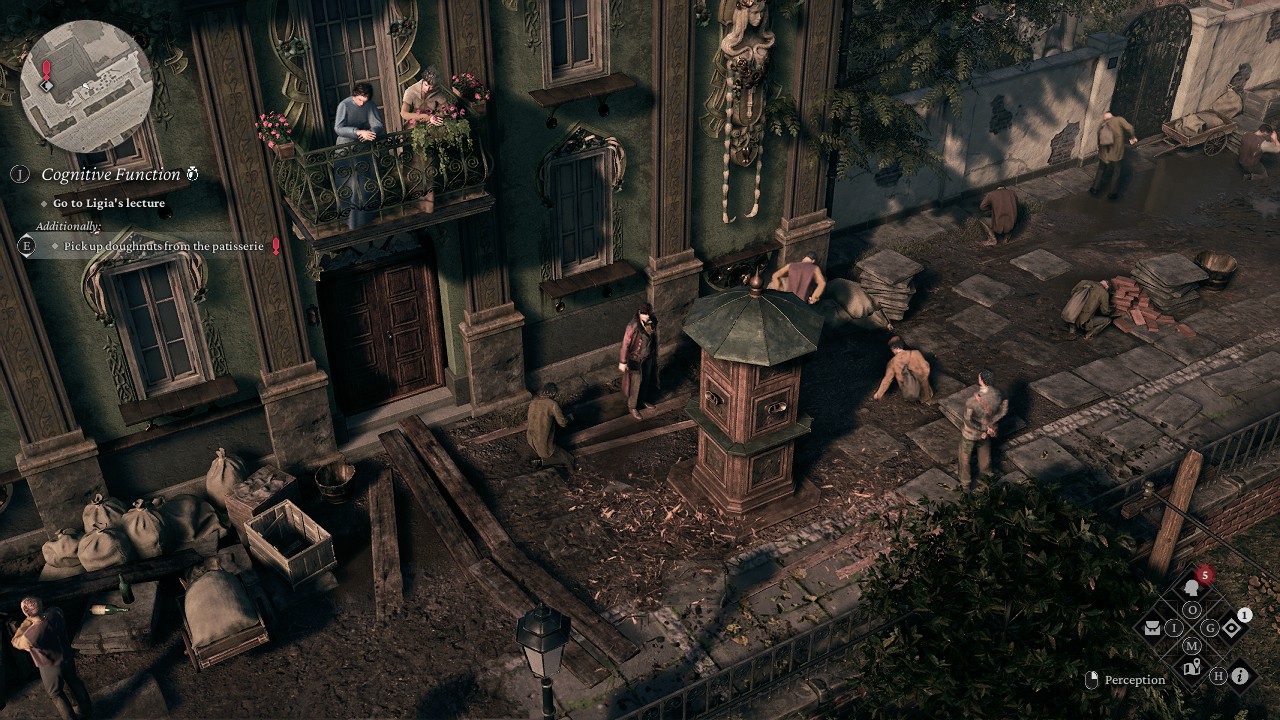
There's actually a quite fascinating, if linear, story at the heart of The Thaumaturge. I was genuinely stunned by how emotionally invested I became in the industry-standard dead relative plotline, usually a guarantee I'd be emotionally checked out. The passing of Wiktor's father instigates the majority of the plot, and dry pitch could make it sounds like a game about litigating a will reading, but it never feels that way. The characters Wiktor is surrounded with are compelling and realistic, and though the writing is occasionally inconsistent I was always delighted to see my favorite NPCs, like Wiktor’s twin sister Ligia, who wears socially-disapproved trousers and teaches at the clandestine Flying University for women and minorities, or his best friend Aubarycy, the "king of Śródmieście," a local gang leader whose penchant for drinking and violence does very little to hide his flamboyant poet’s soul.
The Thaumaturge evokes the feeling of returning to a place you've left long ago, and the moments of lightness—Wiktor's housekeeper making him his favorite hot chocolate, or a minor squabble with Ligia over the correct filling for the doughnuts you're bringing to her lecture—help balance out the creeping sense of dread that enveloped me as I explored a vibrant, beautiful city doing its best to survive under the imperial thumb.
That's the heart of The Thaumaturge, more than Wiktor's family or its fun little magic system. Warsaw is a changing, cosmopolitan city, proud and diverse, with a community of people who are doing their best to understand their collective identity and maintain it while living under the Russian regime. What does it mean to be Polish when, as your pal Rasputin says at the beginning of the game, Poland hasn't existed on a map in a hundred years? Depending on who you ask, Wiktor is either a pitch-perfect example of the Polish bourgeoisie or an unforgivably foreign intruder, with his Russian mother and his long years in exile in France, his fraternizing with Jews and Tatars and socialists and other undesirables. The game shows the dehumanizing litigation of identity that is part and parcel of living under imperial rule even as it presents its own simple answer to the question: Poland is its people.
Warsaw, 1905 is a complete sentence, encompassing within itself class differences and ethnic backgrounds and religion, the great expanse of the human experience which the imperial core would rather problematize away.
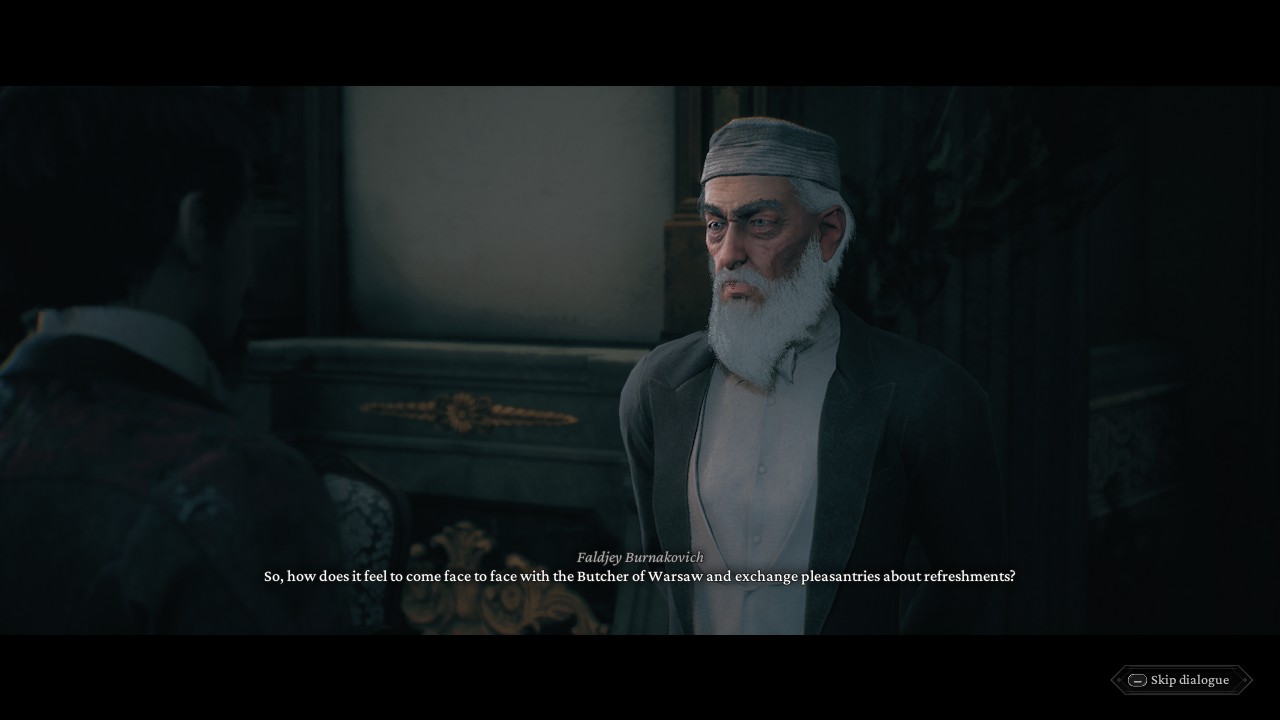
The Warsaw that Wiktor returns to stands on the precipice of history. It asks you to engage with the city and its people in the most commonplace, quiet of ways while holding, at all times, the unavoidable awareness of its very real history. I was blindsided by these moments of solemnity and the melancholy I felt when idly clicking to view the lovingly crafted facades of city landmarks, knowing that in 40 years Warsaw would be best known for her utter destruction.
I loved wandering around Warsaw with Wiktor. Catching a glimpse of a salutor out of the corner of my eye or watching the walls slowly close in as another thaumaturge crawled into my head made me feel dangerous and powerful, and I'm going to miss sending my baby Bukavac to tear out a stranger's throat because he had the misfortune to catch me in the wrong mood. But The Thaumaturge will stick with me most for its incisive and touching historical eye, its loving recreation of partitioned Poland, and how apt it felt to play it at this moment in time, as we watch the destructive effects of imperialism echo across the globe in places like Gaza and Ukraine. The Thaumaturge works because it locates itself within our own world. By refusing to lose itself in allegory, it turns what could have been another by-the-book RPG into an uncommonly mature and impactful echo of history, just with a few more floating skulls than we're used to.
The Thaumaturge might be a bit light for RPG lovers, but it’s a gorgeous, incisive look at a world long past.
Maddi Chilton is an internet footprint from the Midwestern US. Formerly a staff writer at Kill Screen, she now talks about video games for Unwinnable, Heterotopias, Bullet Points Monthly, and other places. The majority of her personality can be traced back to The Elder Scrolls 3: Morrowind.
